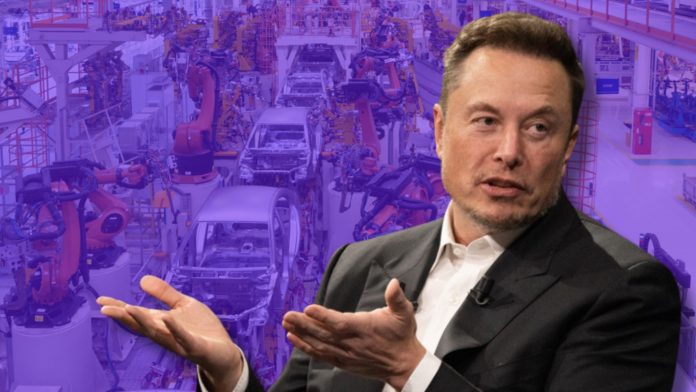Tesla plans to boost pay at its Nevada Gigafactory in 2024, becoming one of the last non-unionized automakers to increase compensation in the aftermath of the United Auto Workers (UAW) strike.
According to information obtained by CNBC, the electric vehicle brand informed employees at the facility, which produces the company’s batteries, that they may receive hourly pay raises ranging from $2 to $8.30, bringing some team members’ compensation to $34.50 an hour.
Additionally, Tesla plans to reorganize its wage tier system, effectively eliminating certain levels and improving access to higher remuneration packages. The changes are expected to take effect in January.
With this move, Tesla follows in the footsteps of other non-unionized automakers who swiftly implemented pay raises to stay competitive with the Detroit Three. Earlier this year, Stellantis, General Motors, and Ford each agreed to boost compensation for manufacturing employees by 25% following a grueling six-week strike organized by the UAW.
Shortly after their victory against the Big Three in late October, union leaders turned their attention to other automakers whose employees have yet to organize. “When we return to the bargaining table in 2028, it won’t just be with the Big Three, but with the Big Five or Big Six,” promised UAW president Shawn Fain. Currently, the union is campaigning at 13 companies across the U.S.
Although the labor group faces an uphill battle to attract members, especially in states where right-to-work laws make unionization exceptionally difficult, its aggressive efforts throughout this year seem to have convinced some car industry executives that action was needed to avoid a repeat of the UAW strike among their own workforces.
In the months following the strike, most major brands, including Honda, Hyundai, Toyota, Volkswagen, and now Tesla, have increased wages at their U.S. factories. Tesla and its CEO, Elon Musk, remain as staunchly opposed to unionization as their domestic and foreign competitors, although the entrepreneur’s opinions are characteristically more abrasive than those of other, perhaps more prudent industry leaders.
“I think it’s generally not good to have an adversarial relationship between one group at the company and another group,” Musk commented during the New York Times’ DealBook Summit just over two weeks ago. “I think the unions naturally try to create negativity in a company.”
Tesla is currently facing a strike in Sweden for refusing to sign a wage deal with its employees. The movement has gained the backing of multiple labor organizations across Scandinavia, with some going so far as to block distribution of the EV maker’s license plates and even imports of its models.




